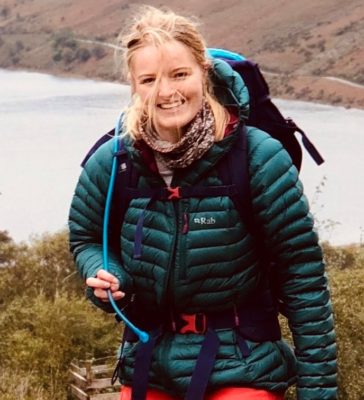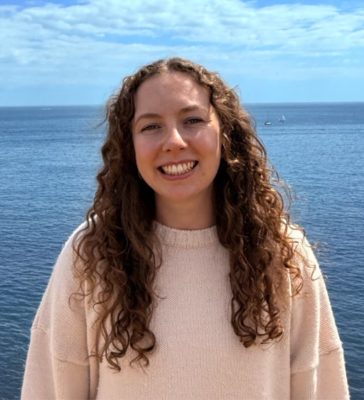
Molly Meadows
Current Employer/Organisation Name
Centre for the Environment, Fisheries and Aquaculture Science (Cefas)
I specialise in crab, lobster and cephalopod fisheries. This entails carrying out research and supporting development projects and surveys to ensure that these fisheries have the data they need, including the regular monitoring and analysis involved with stock assessment. I am lucky to be able to attend fishing surveys aboard research vessels to collect data and samples directly.
Why did you choose to study Zoology at Exeter?
I chose to do zoology because I was always fascinated by the natural world, spending much of my childhood looking for critters. I loved learning, and the draw of learning everything to do with the animal kingdom was too difficult to resist. I chose Exeter because of the setting; I grew up with family in Falmouth and loved Cornwall. Learning about animals whilst having tangible access to the coast and its creatures was incredible.
What was your biggest highlight from your degree?
One of the strongest memories from my time at Exeter was the variety of modules and the experts leading them. On any given day you could be learning incredible facts about the sensory ecology of a beetle, before going to a seminar to workshop social experiments demonstrating the evolution of human culture, to then rounding off the day by heading to the lab to observe the dissection of a bottlenose dolphin.
What have you been doing since you left Exeter and what are you doing now?
After finishing my undergraduate degree, I went on to do a Master by Research studying stingrays in the Bahamas, this was such an incredible experience and I still dream of stingrays almost every night. I then took a career break to walk from Mexico to Canada on the Pacific Crest Trail. Following this intensive lesson in resilience, I joined the civil service faststream where I learnt how science was actually implemented and used in central government. From here I transferred within the civil service to Cefas. I am now a scientist within the shellfish team.
What’s your favourite part of your role at Cefas?
At the end of last year, I was privileged to go on the RSS Discovery expedition across the Atlantic, as part of the Blue Belt Programme. My role as crustacean and cephalopod Identification Specialist was to identify alien creatures from the deep which very few people had ever heard of, let alone seen in the flesh.
What skills and experiences from your degree have been most useful for your career/current role?
Well, you could say that as I am essentially a professional rock pooler now, so the regular rock pooling field courses at Exeter were fundamental to my professional trajectory! I also do a lot of statistical analysis in my role, so the modules that introduced the foundations of the programme R and biological statistics at Exeter, I use almost every day.
What advice would you give to a current student who wishes to pursue your career?
The best opportunities will arise from curiosity and enthusiasm, so try to keep this at the heart of every decision you make!

